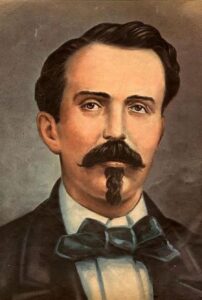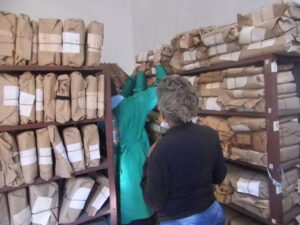Consultation process for the draft Labor Code concluded in Matanzas.

Aspects related to unpaid leave, multiple employment, and social service for recent graduates are classified as recurring issues.

The consultation process for the draft of the new Labor Code, which has just concluded in Matanzas, was an excellent exercise in democratic participation, declared Vladimir González, president of the Provincial Directorate (PPD).
“Although we are still processing the information from the municipal structures, the more than 2,500 planned assemblies have already concluded, even though the official deadline nationwide was set for November 30th,” González specified.
From the outset, on September 8th at Juan Gualberto Gómez International Airport, the meetings, marked by questions, proposals, additions, and modifications, demonstrated the capacity of our workers in this, the most important political process for the labor movement in 2025, emphasized the union leader, who heads the Labor and Social Affairs division. The draft, he explained, was enriched by the contributions of Matanzas workers, both state and non-state.
He recognized the first municipalities to close the consultations, among which Limonar, Jovellanos, Perico, Colón, Los Arabos, Jagüey Grande and Ciénaga de Zapata stand out.
He specified that aspects related to unpaid leave, multiple employment, and social service for recent graduates are classified as recurring issues, but noted that there are still minutes to be worked on.
He reiterated that individual labor law, one of the four books into which this proposed Code is divided, is generating the most comments.
González Rodríguez referred to the government support in each territory to guarantee the timely flow of information to the PPD (Popular Democratic Party), where it is received and reviewed carefully to ensure that everything aligns with each paragraph where opinions are expressed.
As has been explained, the drafting of the Preliminary Bill complies with the legislative schedule approved by the National Assembly of People’s Power (ANPP) and is the result of a temporary working group with various commissions, comprised of several agencies, ministries, institutions, and mass organizations.
The CTC and the unions played a special role in drafting Book Three of the regulation, on collective labor relations, with the collaboration of universities, legal specialists and the Cuban Society of Labor Law and Social Security.
Divided into four books, the proposal includes general provisions, individual rights, collective rights, and labor administration.
This text incorporates 12 previously issued regulations, and the corresponding regulations are also integrated into the law itself.
Its drafting took into account the foundations of the Constitution of the Republic and the Party’s guiding documents, Cuba’s adherence to international labor standards, and a range of the country’s policies and legal provisions.
The new legal framework anticipates improvements not only from a technical standpoint, but above all, substantial changes in principles and concepts related to the world of work.
Among its most important objectives is guaranteeing equal rights for all workers, regardless of the sector or management structure in which they work.
Photo: By the Author.
Written by Eva Luna Acosta Armiñán.




